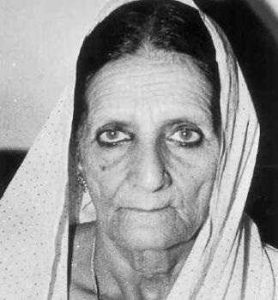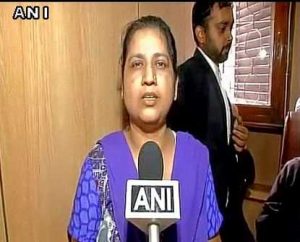Above: Arif Mohammad Khan
“With this verdict, I feel when the petition against polygamy is heard, the reaction of Muslims will be more sensible and they will be open to reason,” says the former Union minister
On April 23, 1985, the Supreme Court judgment on the Mohammed Ahmed Khan vs Shah Bano case created history. The judgment, pronounced by a bench headed by Chief Justice YV Chandrachud, was passed under Section 125 of Criminal Procedure Code 1973. It said that destitute, divorced wives’ entitlement to maintenance after divorce would be applicable to Indian Muslims too.
~By Puneet Nicholas Yadav
On August 23, 1985, Arif Mohammad Khan, then minister of state for Home Affairs in the Rajiv Gandhi government, delivered a passionate speech in the Lok Sabha at the behest of the Prime Minister, defending the Supreme Court judgment in the Shah Bano case which had created an upheaval among the Muslim clergy and especially the All India Muslim Personal Law Board (AIMPLB). Some six months later, in February 1986, when the then Union Law Minister Ashoke Kumar Sen rose in the Lok Sabha to introduce the Muslim Women (Protection of Rights on Divorce) Bill, 1986, that sought to overturn the Shah Bano verdict, Khan—seated a few benches behind Sen—wrote his resignation from the Rajiv Gandhi Cabinet in protest.
In the last three decades, Khan has been relentless in his criticism of the practice of instant triple talaq among Muslims and advocated strong reforms for the Islamic community.
When the Supreme Court began hearing the petitions challenging the validity of instant triple talaq, Khan had pleaded in favour of the petitions—returning to his lawyer’s coat after 21 years. With the SC now setting aside the abominable practice and terming it “manifestly arbitrary and unconstitutional”, Khan believes that the verdict will be a “game changer” for Muslim women in India.
Here are excerpts from an interview:
Q. Your fight against the practice of instant triple talaq has been long and hard fought. But now, in the light of the Supreme Court verdict, keeping sentiments aside, how do you view the judgment purely on legal grounds?
Arif Mohammad Khan: I think this verdict is a game changer, because till the day when the Supreme Court’s ruling came, there was confusion on whether provisions of Personal Laws which are essentially of religious nature can be tested on the anvil on Chapter 3 (fundamental rights) of the Constitution. Now the wording which has been used by the (3:2) majority of the five-judge SC Bench is very clear – Talaq-e-Biddat (instant triple talaq) is arbitrary and therefore unconstitutional. Arbitrary is not tested on the anvil of any other provision other than Chapter 3. So this has opened the gates for further reforms.
Now times have changed, ordinary Muslims are raising their voice against the Board, the clergy.
Q. Are you saying that this verdict has now set a clear precedent and can be applied to any other matter of personal law like polygamy or halala and not be read as being specific to triple talaq?
A: Yes, it will. Triple talaq was part of a religious law and has been declared unconstitutional because it is arbitrary and that the practice finds no mention in the Quran. Now tomorrow if I go to the court and citing these two aspects of arbitrariness and unconstitutionality saying that polygamy, unrestrained right to polygamy and not polygamy per se, is arbitrary and should be struck down, how will the court not entertain the plea?
Q. But in terms of the wording of the judgment, do you think the court could have gone a little further and addressed the issue of other controversial aspects of personal law which have also been contested?
A: No, that wouldn’t have been right. Ek saath zyada dose mat dijiye. Social reforms, the history of the Hindu Code shows, come through piecemeal processes. You can’t do it in one stroke. I was very happy with the manner in which the judges restricted the verdict to just triple talaq. If they had addressed both issues in a single stroke, the AIMPLB would have gone to town against the order and created problems. But with this verdict, I feel when the petition against polygamy is heard, the reaction of Muslims will be more sensible and they will be open to reason.

Q. In the sense that the court has called triple talaq arbitrary, unconstitutional and un-Islamic, had the court also said that the Hanafi (a dominant school of thought among Indian Muslims) laws will not be applied under Muslim Personal Law unless they also find sanction in the Quran, would that have been better?
A: The verdict takes a very wise course… if the court had said anything more; the AIMPLB would have termed it total interference in religious matters and launched massive protests.
Q. But do you really believe that the judgment will make common Muslims question the AIMPLB or the clergy?
A: Absolutely. The Board had, in fact, through its lawyer Kapil Sibal, told the court that triple talaq is un-Islamic and it wants to, on its own, initiate a process to curb it. This admission came once the arguments were over. The Chief Justice (JS Khehar) then asked them if they were willing to give an affidavit saying this, and Sibal said yes. So you see, earlier they asserted that triple talaq was mentioned in the Shariat and now they have admitted that it is not. What credibility do they have left now?
Q. Since the Shah Bano verdict and then the way it was overturned through legislation, it has taken over 30 years for the Indian system to bring this crucial reform. Will other reforms on equally controversial practices take less time now?
A: It will not take 30 years but you will see that in just 3 years or perhaps even less, the (Muslim) community will accept reforms. They will challenge the clergy and will not shy away from moving court against them or the Board. In 1986, over 300 bureaucrats, professors, etc led by Badruddin Tyabji had written to the Prime Minister (Rajiv Gandhi) and told him to not listen to the clergy because it was highly regressive… later when I resigned, some of these people came and advised me to not challenge the clergy or the Board… No one was willing to listen to me. Now times have changed, ordinary Muslims are raising their voice against the Board, the clergy.
Q. Does this verdict now make the Muslim Women (Protection of Rights on Divorce) Act, 1986 redundant?
A: No, not for now. But that may happen only if and when the Uniform Civil Code is implemented. Although I must say that the 1986 Act was actually a very good one and it wasn’t because of that Act that I resigned but due to the manner in which the then government wanted to overturn the Shah Bano verdict.
When Rajivji and the Muslim Personal Law Board leaders entered into a final agreement on the Act, I received a call from ML Fotedar who asked me to meet Ashoke Sen (then law minister) and see the draft of the Act.

I have always considered Ashoke Sen my guru in law. I went to see him and he asked me to read the draft. I read it, then re-read Section 3 of it again and again and I was stunned. This section said that a “reasonable and fair provision to be made and paid within the period of iddat”. Anybody could see that this Section had overturned the AIMPLB’s demand which wanted the Act to say ‘for’ and not ‘within the period of iddat’. I asked Sen if the Board had agreed to this Section and he said yes. I asked him again and said if he had achieved this then it was a big success because he had managed to overturn the Board’s demand to confine a Muslim husband’s liability for the period of iddat only. This meant the court could now decide on the amount to meet the future requirements and reasonable demands of the divorced wife. As I was leaving, Sen stood in front of me and pleaded with folded hands – Arif, none of them has understood this provision and I request you to keep quiet about this. When the Act was passed, this Section was the saving grace for Muslim women because even today it is interpreted by courts the way Sen wanted it to be and now Muslim women are even winning maintenance worth several lakhs of rupees, thanks to Sen.
Q. But then why is there an impression that the 1986 Act completely overturned the Shah Bano verdict?
A: That is because the government didn’t expressly endorse Section 3 due to its own pressures. Since the government had already publicised that the Act was being passed to overturn the Shah Bano verdict. Then there’s the usual beauty or problem—whichever way you wish to see it—of our system that the difficult part of a law is dispensed within its title itself while the fine-print has remedies to defeat the law’s purpose.
Q. How do you see the politics that is expected to be played over this verdict?
A: Let me tell you one thing very clearly—had there been any other government at the Centre, the mullahs would have already taken to the streets and launched massive protests forcing the government today to do what had happened in 1986. The Prime Minister’s comments against triple talaq were very reassuring and the government also maintained that stand in the court. I have it on good authority that Kapil Sibal had first refused to contest the case on behalf of the AIMPLB but was later—I don’t know under what pressures—forced to appear for the Board. The Congress took a very convenient route—you had Kapil Sibal arguing for the Board and Salman Khurshid assisting the court. If there was a Congress government today, I am certain that such a judgement would never have come. As far as politics is concerned, in democracy politics can’t be seen as some dirty word. If something good for the society, for women, is coming out of politics, what is the harm in it?
Q. Now there’s a renewed push for a Uniform Civil Code (UCC), which is just as controversial as the triple talaq…
A: Why see the UCC as some red rag? Let there be a draft of the UCC, let it preserve the best from all religious practices and do away what is arbitrary and unconstitutional, and then we can have a discussion on it. Where is the harm in doing that?
Q. Do you also think that this verdict presents a fit case to argue for and enable the government to do away with the concept of personal civil laws altogether?
A: Yes, that would be the only sensible course. The Fiqha or Muslim law in fact doesn’t permit a non-Muslim to adjudicate on matters argued under Islamic laws. So now when the Indian Constitution doesn’t even uphold that crucial aspect of the Fiqha, when the Qazi has no right to judicial powers, why shouldn’t this chapter be closed and personal laws be done away with completely?
Q. You have often quoted Pandit Nehru as saying that his biggest regret was that he failed to give Muslim women the same rights as those enjoyed by Hindu women in India. Isn’t it ironical that Rajiv Gandhi had a brilliant chance to address that regret of his grand-father but failed?
A: It was ironical and unfortunate. But the Supreme Court and conviction of Prime Minister Narendra Modi have now taken the first step that will ensure that Panditji’s unfulfilled dream is now fulfilled.


